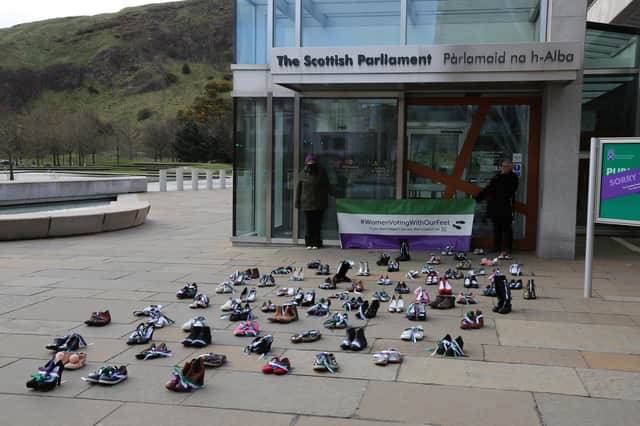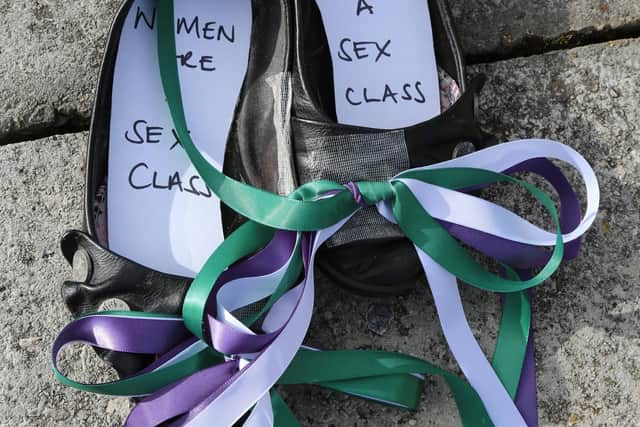Scottish Election 2021: Women's voices are being heard in party manifestos – Gina Davidson


Without doubt the pressure being applied by new grassroots women’s organisations – and indeed even those much longer established – to ensure that the needs of women are recognised by those seeking election to the Scottish Parliament has borne some fruit.
The party manifestos are littered with with policies aimed squarely at capturing the female vote, whether it be pledges to ensure women are at the forefront of the economic recovery, promises to increase spending on and research into, women’s health issues, and full-throated commitments to tackling violence against women and girls.
Advertisement
Hide AdAdvertisement
Hide AdChildcare is a main plank of party offers to women – expanding the free hours and lowering the age at which children can start – which sounds fine in print, but the reality of achieving it will be very different. We know this because the SNP’s last promise on increasing hours to 1,140 a year has still not been met.
The desire to offer more free childcare and at even younger ages is twofold: to get women back into the work and to ensure children from the poorest families are receiving the kind of early intervention which could start to really tackle the attainment gap in schools.
Both ends are eminently desirable, but wouldn’t it be more radical to offer parents (childcare is not just a women’s issue after all) the opportunity to stay at home with their very young children for longer, offering financial and other support to them and employers to enable them to do so, rather than see kids in childcare settings for incredibly long stretches of time?
For parties who say they want to introduce some form of national minimum income to tackle financial poverty it feels remiss they've not thought harder on how these two issues could be tied together.


But of course that slogan about respecting sex is about far more than childcare. It’s at the very root of the debate around women’s rights as set out in the Equality Act (EA) 2010, and the potential impact on those of reforming the Gender Recognition Act (GRA).
The SNP has lost many members over this issue – particularly to the new Alba party which has an unequivocal stance on upholding the EA – and now says while it will reform the GRA it will “ensure that these changes do not affect the rights or protections that women currently have”. Labour has said that it too would reform the GRA, but that the EA will be used to “frame our equality policies”.
The Conservatives have ducked the issue entirely and while neither the Lib Dems nor Greens mention the Equality Act, both pledge to de-medicalise the process of legally changing gender.
Maybe the latter two parties are being more honest with the public – they wholeheartedly believe transwomen are women, take it or leave it, cast your vote accordingly. SNP and Labour meanwhile are trying to square the circle of writing policies for women, while shying away from the definition of the word they are using.
Advertisement
Hide AdAdvertisement
Hide AdIt really shouldn’t be that hard and the next parliamentary term will ultimately see all MSPs forced to be clear on where they stand.
A message from the Editor:
Thank you for reading this article. We're more reliant on your support than ever as the shift in consumer habits brought about by Coronavirus impacts our advertisers.
If you haven't already, please consider supporting our trusted, fact-checked journalism by taking out a digital subscription.
Comments
Want to join the conversation? Please or to comment on this article.
